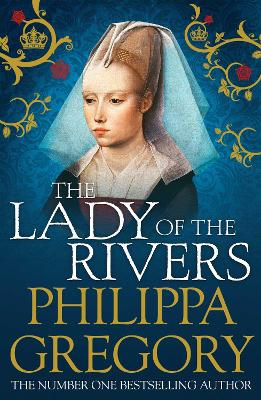Reviewed by Amber (The Literary Phoenix) on
The Lady Rivers is a character usually untouched by history, especially in a time that is so overshadowed by men and tyrants. Jacquetta is best known as the mother of Elizabeth Woodville, Queen of England and wife to Edward, the first York King. Gregory's books are always fictional, but filled with a slew of facts and even the foresight and alchemy fit well - much better, I think, than Hannah's in [b:The Queen's Fool|252499|The Queen's Fool (The Plantagenet and Tudor Novels, #12)|Philippa Gregory|https://images.gr-assets.com/books/1399204116s/252499.jpg|1024199] of her Tudor line. Having read [b:The White Queen|5971165|The White Queen (The Plantagenet and Tudor Novels, #2)|Philippa Gregory|https://images.gr-assets.com/books/1439412993s/5971165.jpg|13560666] and [b:The Red Queen|7148256|The Red Queen (The Plantagenet and Tudor Novels, #3)|Philippa Gregory|https://images.gr-assets.com/books/1281335912s/7148256.jpg|7413156], Jacquetta's story being a step away from the throne is a relief. In many ways, she reads like [b:The Other Boleyn Girl|37470|The Other Boleyn Girl (The Plantagenet and Tudor Novels, #9)|Philippa Gregory|https://images.gr-assets.com/books/1355932638s/37470.jpg|3248536]'s Mary, who I also enjoyed. Jacquetta's personality and attitude is a breath of fresh air from all the power-hungry women that Gregory typically portrays.
Overall, this is a well-written tale about the rise and fall of power during the Cousin's War, with glimpses to the effects of battle on the kingdom and countyfolk alike. Gregory, as always, plays particular attention to the roles of women in this era. Gregory never disappoints. After [b:The Constant Princess|16181|The Constant Princess (The Plantagenet and Tudor Novels, #6)|Philippa Gregory|https://images.gr-assets.com/books/1355932704s/16181.jpg|1745738], this is my favorite of her works.
Reading updates
- Started reading
- 29 July, 2017: Finished reading
- 29 July, 2017: Reviewed
